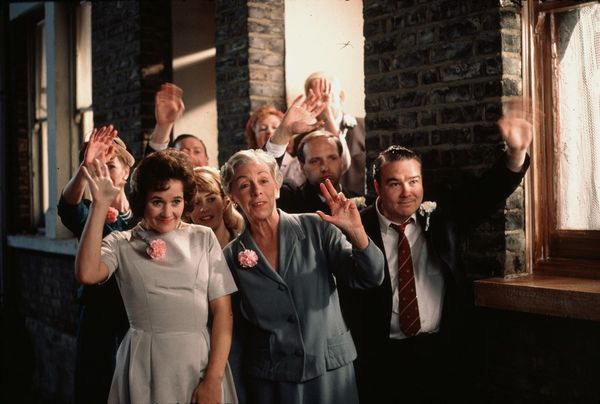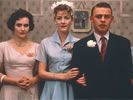Eye For Film >> Movies >> Distant Voices, Still Lives (1988) Film Review
Distant Voices, Still Lives
Reviewed by: Amber Wilkinson

The past may well be a foreign country but as Terence Davies’ award-winning drama neatly points out, we never truly emigrate.
Distant Voices, Still Lives is set in a working-class Liverpudlian home, tracking the period after the Blitz and before The Beatles. Heavily autobiographical, Davies draws on his own Scouse childhood to present an evocative portrait, which is as much about the nature of memory as it is about the events which occur.

Tony (Dean Williams) lives with his sisters Maisie (Lorraine Ashbourne) and Eileen (Angela Walsh) in a terraced house with their careworn mam (Freda Dowie) and volatile dad (Pete Postlethwaite). Their lives are typical of the period, with women bonding together but frequently oppressed by their menfolk. If that sounds grim, it is and it isn’t, rather this is a film rich in reality, latching on to the highs and lows – which is, of course, why the incidents are memorable.
Davies’ roving camera wanders the passages of the past in a film which is split into two parts – the first recalling Dad’s beatings, intercut with a marriage and a death, and the second centring on a christening and a wedding but covering a lot more ground than that might suggest.
In fact, Davies wrote and filmed the second part of the film – Still Lives – some two years after completing the edit on the Distant Voices segment.
The result is a rich tapestry, which delves into how our reminiscences work. Multi-layered memories peel back like ageing wallpaper, revealing long-forgotten colours or cracks thought covered up for good.
Voices are as important as visuals to Davies and he tells his story as much through songs sung at the pub or hymns recalled as through the action. Like the work of Dennis Potter (The Singing Detective, Pennies From Heaven) music is the memory on which other recollections hang.
With just about every character actor Liverpool had in the Eighties making an appearance, the cast are as strong as the concept – but this is less about the people than the period.
This newly restored print from the BFI means the film has never looked better. See it and let it echo in your own memory.
Reviewed on: 20 Apr 2007
















